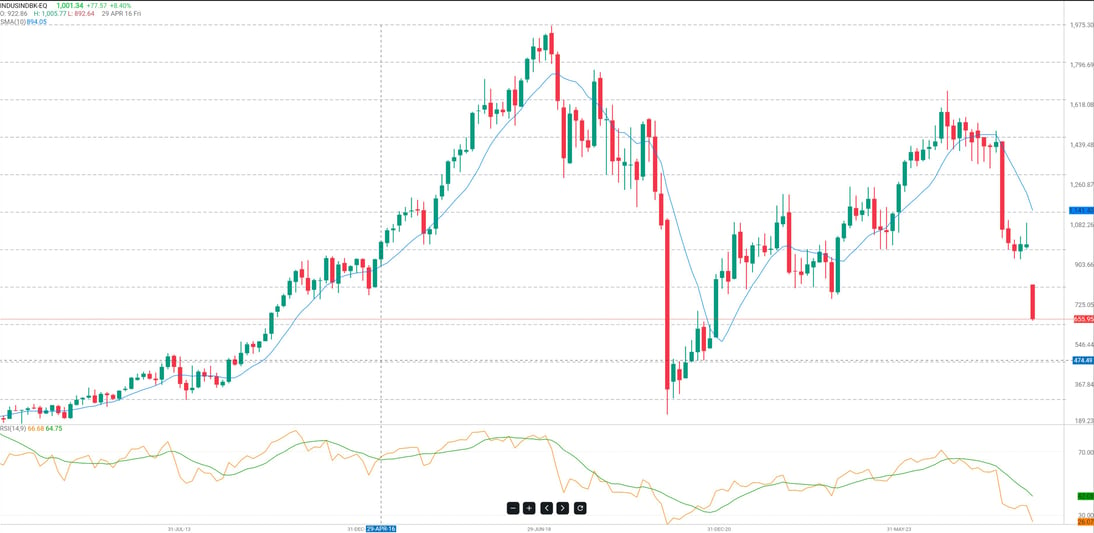Indusland Bank Crashes
Accounting errors in financial records led to a weaker-than-expected net worth. | Unexpected forex losses made things worse | Investors panicked and started selling shares, leading to a massive drop in stock price.
CA Prathik
3/11/20252 min read


Imagine You Own a Grocery Store
Let’s say you run a grocery store. You believe that you have ₹10,000 worth of stock—fruits, vegetables, packaged food, etc. But one day, you decide to do a proper stock check and realize that some of your products are expired, misplaced, or miscounted. After adjusting your records, you find out that your actual stock value is only ₹8,000. That’s a ₹2,000 loss just because of errors in accounting and stock management.
This is exactly what happened to IndusInd Bank. They thought they had a certain amount of money (net worth), but when they checked their financial records again—because of new rules set by the Reserve Bank of India (RBI)—they found discrepancies. Their financial position turned out to be weaker than they originally reported. This worried investors.
Now, Let’s Talk About Forex Losses
Now, imagine your grocery store also sells imported chocolates. You buy them from a foreign supplier and agree to pay ₹100 per chocolate based on the exchange rate at that time. However, by the time you actually have to pay, the exchange rate changes, and you now have to pay ₹120 per chocolate instead of ₹100. This unexpected increase in cost is a loss you didn’t plan for.
Something similar happened with IndusInd Bank’s forex (foreign exchange) losses. The bank had been involved in forex derivative deals—agreements related to currency trading. But because exchange rates moved unexpectedly and certain miscalculations were made, they ended up with losses they hadn’t anticipated.
The Loss They Found
IndusInd Bank recently identified accounting discrepancies in its derivatives portfolio, leading to an estimated adverse impact of approximately 2.35% on its net worth as of December 2024. Given the bank's net worth of ₹65,102 crore as of December 31, 2024, this percentage translates to a potential reduction of about ₹1,530 crore.
Analysts estimate the impact could range between ₹1,500 crore and ₹2,000 crore. The bank has initiated an external review to validate these findings and has assured stakeholders that its profitability and capital adequacy remain robust enough to absorb this one-time impact.
The Aftermath: Why Did the Stock Crash?
Now, think about what happens if your customers hear about both of these problems:
Your accounting errors (mismanaged stock)
Your unexpected losses from foreign purchases (higher chocolate costs)
People may start doubting your business. Some may even stop shopping at your store, fearing more hidden problems. Similarly, when investors saw IndusInd Bank had both accounting issues and forex losses, they got scared and started selling their shares.
When a lot of people sell a stock at the same time, its price crashes. That’s exactly what happened to IndusInd Bank—its stock fell by 27% in a single day, marking its worst trading session ever.
Key Takeaways
Accounting errors in financial records led to a weaker-than-expected net worth.
Unexpected forex losses made things worse.
Investors panicked and started selling shares, leading to a massive drop in stock price.
While IndusInd Bank’s CEO has assured that the company will remain profitable, investors are still cautious. The coming months will reveal whether the bank can rebuild trust and recover from this setback.
